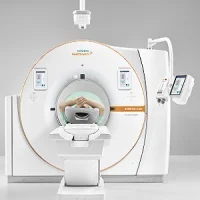Increasing use of artificial intelligence in radiology maybe beneficial in terms of workflow efficiency, but AI seems to dissuade medical students from choosing imaging as their speciality.
A survey study, carried out by Swiss researchers, indicates that medical trainees regard AI as a potential threat to diagnostic radiology, making them hesitant to specialise in imaging amidst the uncertainty surrounding AI use.
-
You May Also Like:The Future of Radiology Training
.
Results of the survey suggest "that medical students might be afraid to specialise in radiology because, amongst other reasons, they seem to fear the unknown future of AI,” the researchers wrote in a report published in the European Journal of Radiology. This finding highlights the need to further educate medical trainees about AI and how it will reshape radiology of the future.
Jasper van Hoek, with the University Hospital and University of Bern, Switzerland, and colleagues conducted the study to evaluate the opinion of radiologists, surgeons and medical students on a number of important topics regarding the future of radiology, such as artificial intelligence, turf battles, teleradiology and 3D-printing.
An online questionnaire was sent out and replies were received from radiologists (59), surgeons (56) and students (55). Of the 55 students polled, 26% cited AI as one of the reasons for avoiding radiology as their speciality.
In contrast, radiologists have a more positive view on artificial intelligence, saying that the technology will help improve their workflow.
Other important findings of the survey study include:
- The majority of respondents favour the use of AI as a support system for the radiology profession.
- Radiologists expressed more concern about “turf losses” to other professionals (ie, cardiologists) who may become more intimately involved in image interpretation in the future.
- Teleradiology and 3D-printing are viewed more positively by all respondents, with many radiologists saying they do not feel threatened by remote imaging work. Additionally, radiologists see themselves doing most of their duties from home in the future.
Key limitations of the study include its small sample size and confinement to one geography (participants were from the German speaking part of Switzerland). Mastering AI will help increase the radiologists’ sway on the care team, the researchers note, and uncertainty will be reduced as providers better understand the intricate liability and ethical issues that accompany it.
“This uncertainty indicates that the future of radiology should be discussed more during medical education, but also amongst radiologists,” Hoek et al. wrote. “Students might overestimate the dangers of AI to radiology, whereas many radiologists might perceive the future of AI in fact to be more negative than how it is portrayed in most radiological publications on this topic.”
Source: Radiology Business
Image: iStock










